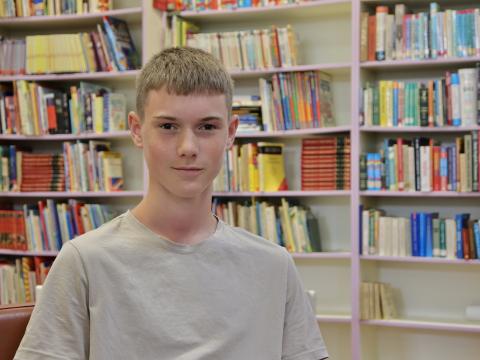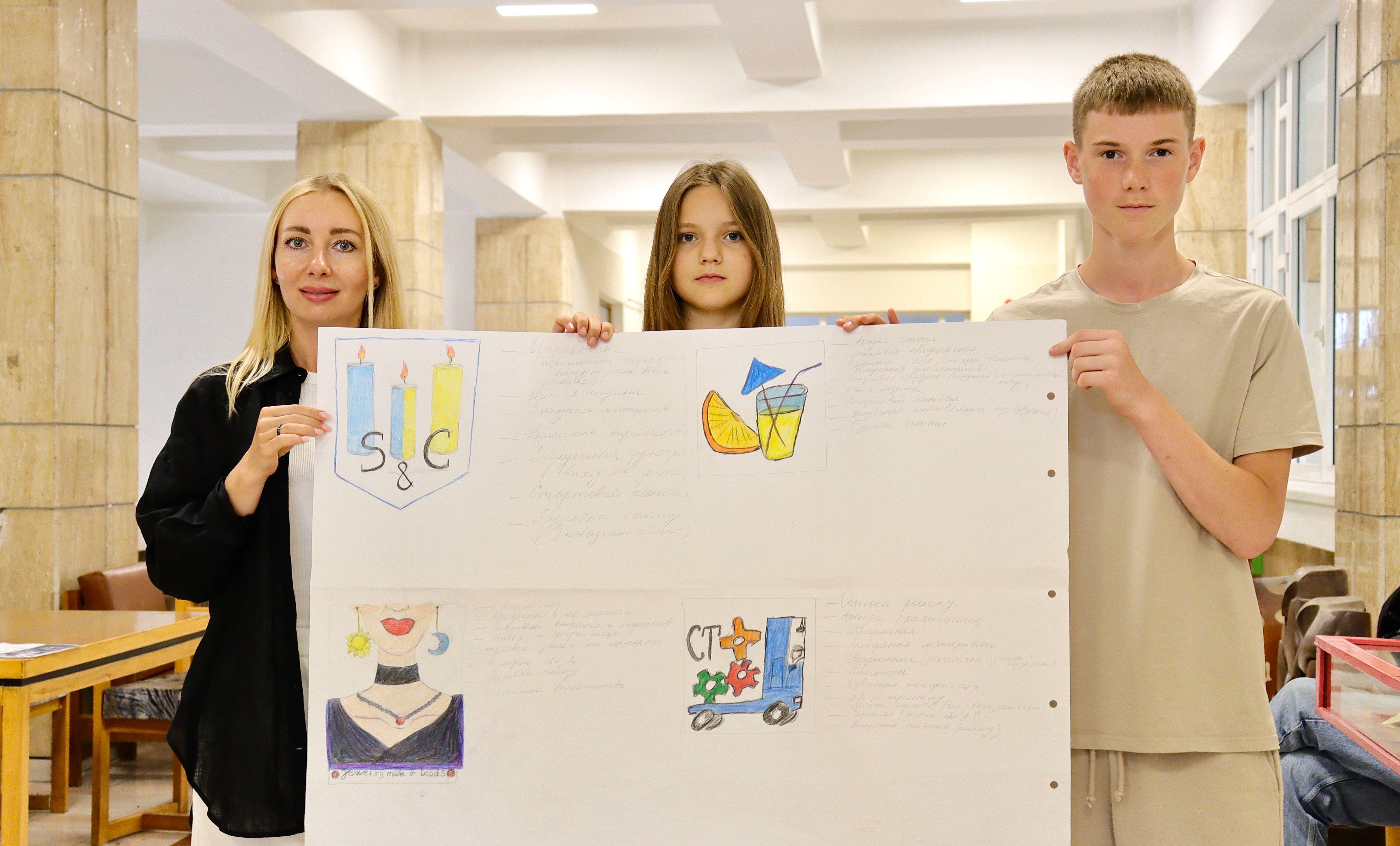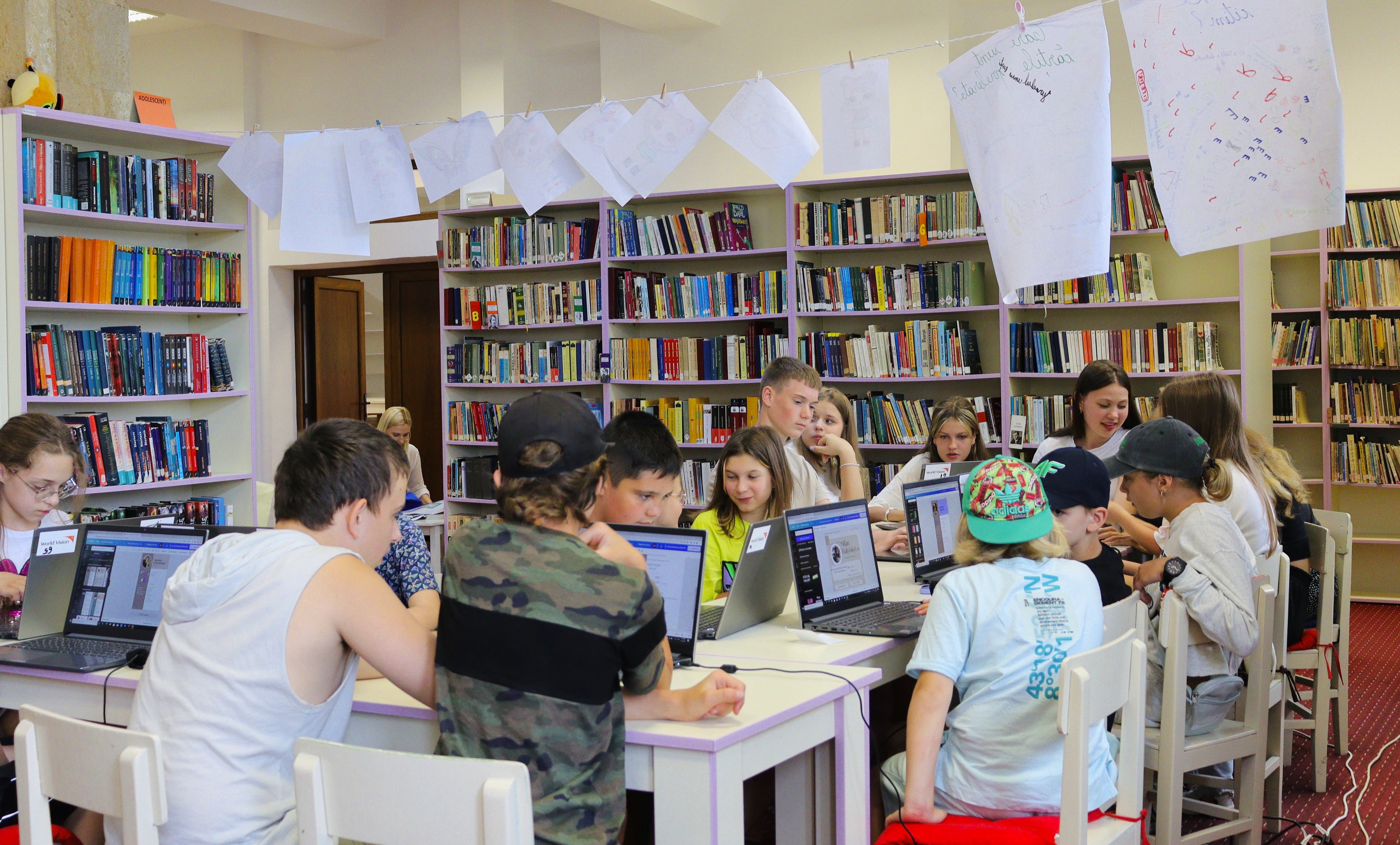Financial education boosts interest of Ukrainian children in Romania to become future entrepreneurs

Tucked within a public library in Constanta, a city southeast of Romania, 20 Ukrainian children aged 12 and 16 opened their light-grey laptops. The library’s tables with purple stripes are now crowded with children set to begin their financial education class.
“Pick five skills you believe you possess, but make sure they represent who you truly are,” says Svitlana Kucheryavenko, World Vision’s facilitator, as she guided the young minds in designing their personal resumes.
“Your professional identity will be shaped by your education, skills, foreign language knowledge, and experiences,” she adds.

Every week, the Ukrainian children join the classes provided by World Vision with the support of the Australian Government’s Australian Humanitarian Partnership (AHP), to learn about managing finances, savings and putting up a business.
The courses aim to help youngsters with personal decision making, procurement of goods and services, preparation of their resume, and how to build a business plan.
Working meticulously in a quiet corner of the library, Ian has set his sights on his dream. “Someday, I hope to own a restaurant and cocktail bar on an idyllic beach,” says Ian as his dark-brown eyes tinkled.
The 14-year-old believes the food service industry will always have a good demand if one is willing to work hard to build a profitable business.

“I designed a business plan for a small café on the beach in Constanta that would sell cocktails, sandwiches, and snacks,” explains Ian. Guided by his teacher, he mapped out the size of the investment and prospective monthly earnings.
He also worked on the inventory, which included equipment like freezers and generators. “I would run the café with another friend, splitting the earnings between us,” adds Ian enthusiastically.
As of December 2023, the teenager and his family had relocated to Romania from Mykolaiv, located in southern Ukraine. He has been a part of the financial education workshops since the very beginning.
In my dreams, I picture myself entering my classroom in Ukraine, reuniting with my classmates, friends, and teachers. I miss them so much.
Seven months later, he is still as excited as the day he started. “The people I meet here, the socializing, and the warmth are what I enjoy about this place,” says Ian.
“These lessons helped me mature and shift my perspective on finances and life,” he explains, as he continues, “For the first time, I worked on a resume and a business plan. It helped me visualize my future goals and begin working toward them realistically.”
Sports, math, physics, and information technology are Ian’s four main interests. He is a gifted acrobat who has earned the status of candidate master in acrobatics. “I cannot keep up with my training in Romania, I do not have access to sport schools in the city where I live,” he explains.

Ian has been studying online for almost three years. Not only did the war alter his life, but it also changed his education. Starting in September 2023, he will attend a Romanian school. “It never occurred to me that I would learn the Romanian language,” he says.
But his heart longs for his life back home. “In my dreams, I picture myself entering my classroom in Ukraine, reuniting with my classmates, friends, and teachers. I miss them so much,” he adds.
As the lecture came to an end, the students provided a presentation of their business plan. In the library, A2 posters with vibrant colors and handwriting are hung.

Twelve-year-old Kira, Ian’s younger sister, presents her own business idea. “I want to be a make-up artist. I’m going to rent a large apartment and turn it into a beauty salon,” she shares.
After class, children gather in small groups to play chess and board games. “I want to give them a chance to socialize and get to know each other outside of the courses,” explains Svitlana, and adds, “I can feel the change. I see their enthusiasm for exploring, learning, and growing.”
World Vision in Romania has reached more than 134,000 people, including Ukrainian refugees and hosting communities. Since the start of the war, Ukrainian families have been assisted of basic needs, education, psychosocial support, shelter, cash aid, and health services.

Story and photos by Laurentia Jora, Communications Officer